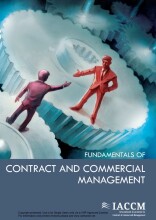Develop Phase: Other Business Relationships - Working with agents and distributors
4 important questions on Develop Phase: Other Business Relationships - Working with agents and distributors
What are consequences as result of using third party channels?
- Direct sales to customers may not be possible in specific territories;
- Flexibility in negotiating prices is lost;
- Obligations to use the channel may exist even when customers want a different approach.
What are the key distinctions between an agent and a distributor?
- An agent is a representative of the principal company while a distributor is an independent entity.
- A distributor not only possesses the goods, being sold, but also takes title to them. An agent holds the goods temporarily (or may take orders that are then fulfilled directly by the manufacturer), but does not own them.
- The distributor is acting on its own behalf, usually by purchasing the goods from the manufacturer, adding a profit margin and reselling the goods.
Is it allowed to influence sales prices?
- Higher grades + faster learning
- Never study anything twice
- 100% sure, 100% understanding
What are the most major concerns about agent/distributor agreements?
- Consider the distributors distribution channels
- Authorized territory
- Minimum amounts of sales or purchases
- Performance terms
- price provisions
- basis of their commission structure,
- currency fluctuation.
- Starr and end dates.
- Stock holding / inventory obligations
- Obligations to provide services,
- Quality obligations
- Confidentiality policies, handling of confidential information
The question on the page originate from the summary of the following study material:
- A unique study and practice tool
- Never study anything twice again
- Get the grades you hope for
- 100% sure, 100% understanding
































